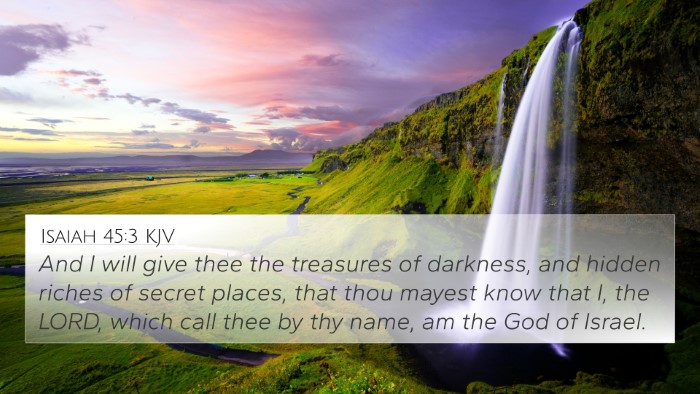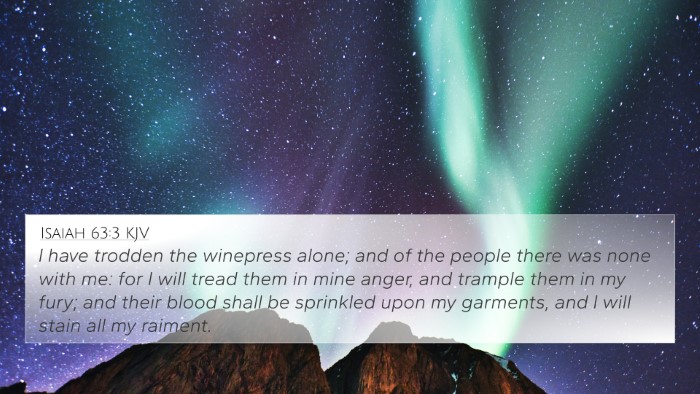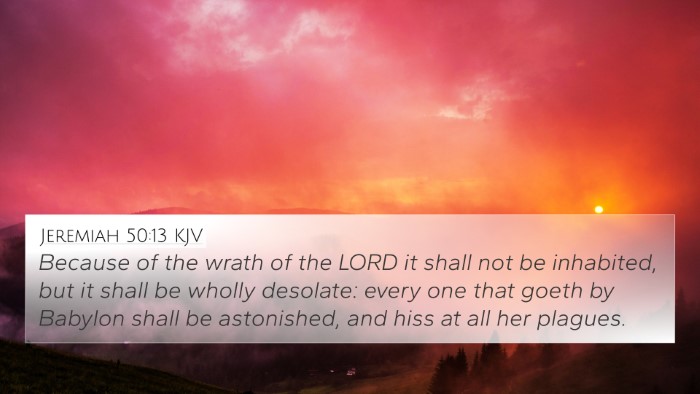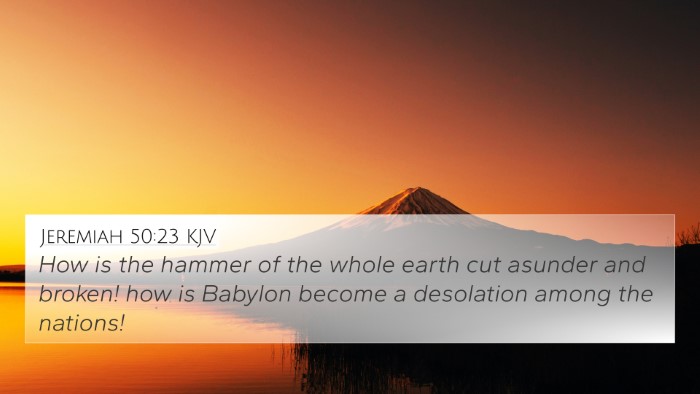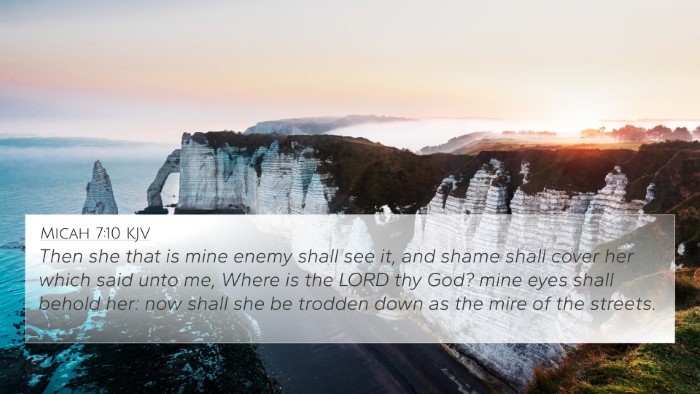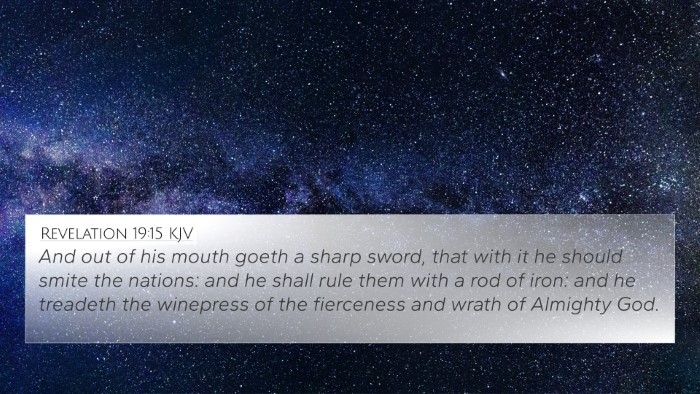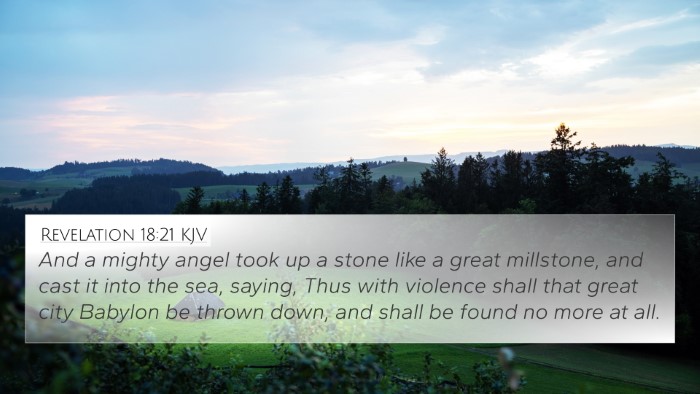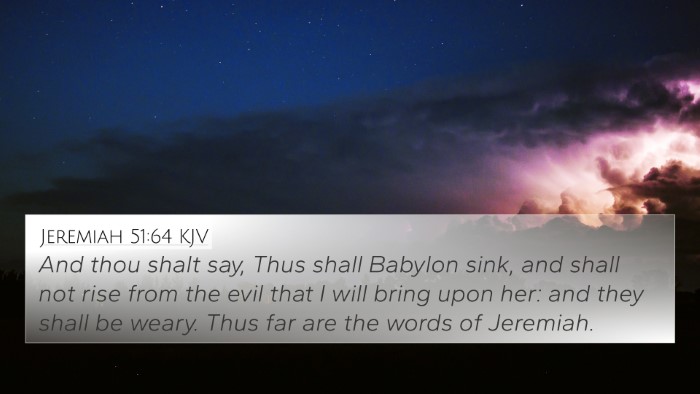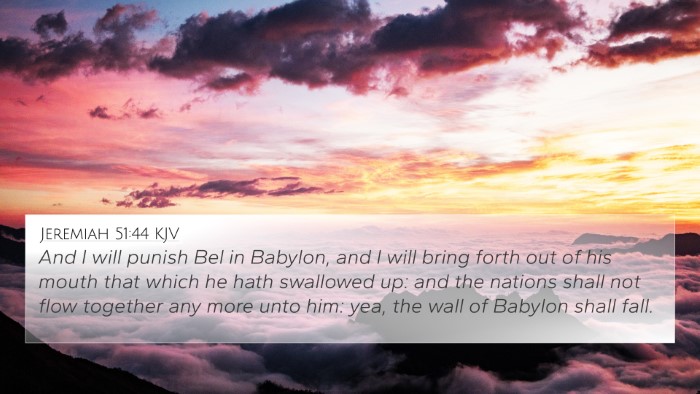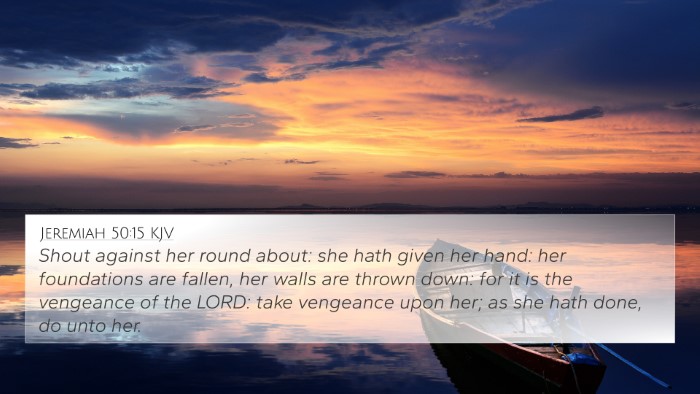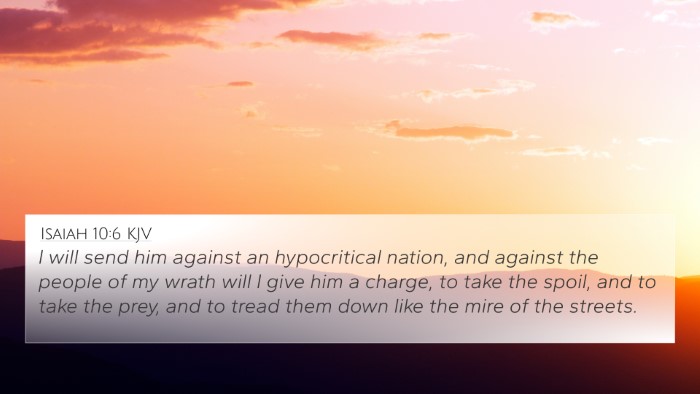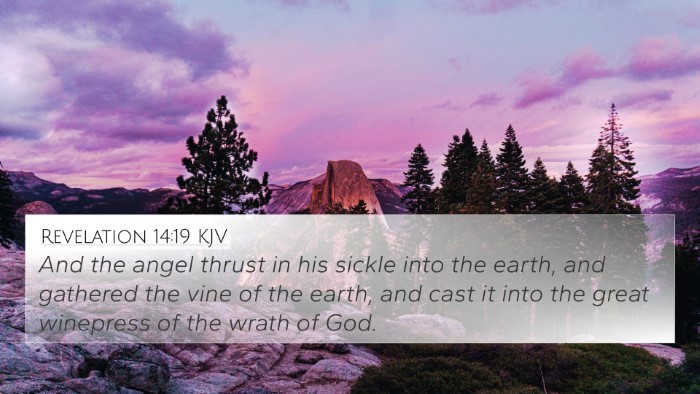Understanding Jeremiah 50:26
Jeremiah 50:26 states, "Come against her from the farthest place; open her granaries; pile her up like heaps and devote her to destruction; let nothing be left of her." This verse is a prophetic utterance emphasizing the divine judgment upon Babylon, illustrating God's power to dismantle pride and idolatry. Below, we explore the interpretation and significance of this verse based on insights from public domain commentaries.
Commentary Insights
Jeremiah is often referred to as the "weeping prophet" due to his heartfelt pleas for the people of Judah. In this passage, the prophet conveys a message of coming destruction, a common theme in biblical prophecy. This judgment is not merely punitive but serves as a means to restore righteousness. The insights from Matthew Henry, Albert Barnes, and Adam Clarke help elucidate the depth of this scriptural message.
Matthew Henry's Commentary
- Divine Judgment: Henry highlights that this verse portrays God's severe judgment against Babylon. It serves as a warning to nations that defy His commandments.
- Granaries and Wealth: The mention of granaries symbolizes the abundance and prosperity of Babylon. Henry suggests that this wealth is destined for destruction, reinforcing the theme that human pride, symbolized by wealth, will ultimately face God's wrath.
Albert Barnes' Commentary
- Historical Context: Barnes connects the verse to the historical context of Babylon's fall, illustrating how God uses nations to enact His will.
- Call to Action: The phrase "come against her" is a call for action. Barnes posits that it signifies an impending military strategy against Babylon, emphasizing that God's judgment is often executed through human agents.
Adam Clarke's Commentary
- Metaphorical Language: Clarke notes the metaphorical nature of "heap her up like heaps." This figurative language suggests total annihilation and the complete removal of evil.
- Covenantal Theme: Clarke emphasizes that this destruction aligns with the covenantal relationship between God and His people. Babylon's fall is a necessary step for restoring Israel.
Thematic Connections
Jeremiah 50:26 connects to various biblical themes, illustrating the overarching narrative of divine judgment and restoration. Below are 7-10 Bible Cross References related to this verse that help in understanding the broader biblical context:
- Isaiah 13:19: "And Babylon, the glory of kingdoms, the splendor and pride of the Babylonians, will be overthrown by God like Sodom and Gomorrah." - This verse parallels the prophetic warnings against Babylon.
- Revelation 18:2: "With a mighty voice he shouted: 'Fallen! Fallen is Babylon the Great! She has become a dwelling for demons, a haunt for every impure spirit...'" - This signifies the culmination of God's judgment upon Babylon.
- Jeremiah 51:3: "Do not let the archer string his bow, or let him hold up his shield." - A continuation of God's instruction regarding the destruction of Babylon.
- Ezekiel 26:21: "I will make you a desolate city, like cities no longer inhabited." - This emphasizes how God will use judgment to cleanse and purify.
- Habakkuk 2:8: "Because you have plundered many nations, the peoples who are left will plunder you." - Reflects the principle of divine retribution at work.
- Revelation 17:5: "The name written on her forehead was a mystery: Babylon the Great, the Mother of Prostitutes, and of the Abominations of the Earth." - Describing the spiritual condition of Babylon.
- Obadiah 1:15: "The day of the Lord is near for all nations. As you have done, it will be done to you." - A reminder of the consequences of actions in a moral universe.
Interpreting Biblical Themes through Cross-References
Cross-referencing Bible verses reveals a coherent narrative throughout Scripture regarding judgment, restoration, and the sovereignty of God. Understanding connections between these verses deepens our insight into God's character and His plans for His people.
Tools for Bible Cross-Referencing
Utilizing various resources, such as biblical concordances and cross-reference guides, can significantly aid readers in their understanding:
- Bible Concordance: A tool for finding verses based on specific words or themes.
- Cross-reference Bible Study: Methods to explore connections between verses for in-depth study.
- Bible Reference Resources: Comprehensive materials that assist in linking scripture texts.
Conclusion
In summary, Jeremiah 50:26 serves as a significant reminder of God's judgment against pride and idolatry. Prophetic literature, characterized by vivid imagery and compelling themes, invites reflection on human behavior and divine principles. By engaging with the Bible's interconnected nature through cross-referencing, believers can gain a deeper understanding and appreciation for the complexity and relevance of Scripture. As such, verses like Jeremiah 50:26 articulate timeless truths that resonate through both the Old and New Testaments, echoing the consistent message of redemption and justice found throughout the Bible.




